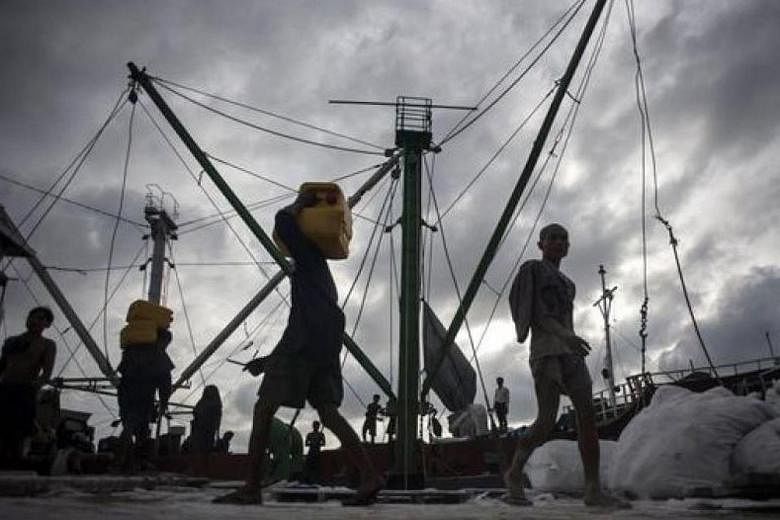YANGON - Foreign investors remain upbeat about Myanmar's economy despite concerns over its pace of reform, said the head of a Singapore think tank, Associate Professor Simon Tay on Wednesday (June 28) at forum in Yangon.
According to a preliminary survey result of foreign businesses conducted by the Singapore Institute of International Affairs, some 67 per cent remain optimistic about its economic prospects, Prof Tay said at the Second Asean-Myanmar Forum here. At the same time, 84 per cent felt it was difficult to invest in Myanmar, partly due to the lack of clarity in its legal regime.
But business leaders who attended Wednesday's forum also urged the new government to speed up on developing concrete measures to execute the broad visions it has articulated so far.
The Myanmar Investment Commission has prioritised investment in 10 areas, including agriculture, livestock and fishery, export promotion, power and import substitution. Last July, it revealed a broad economic policy that, among other things, aimed to promote national reconciliation, support competition and cut red tape.
Local businessman Thurane Aung said on Wednesday current economic policy is lacking in depth.
"The vision is there, but how to get to that vision?" the vice-president of Myanmar Japan Thilawa Development, which runs a section of the Thilawa special economic zone near Yangon, told The Straits Times. "Perhaps the integration of the new administration with the existing bureaucracy may be somewhat a challenge."
Myanmar received US$6.65 billion (S$9.22 billion) in foreign investment in the year ending March, down from US$9.48 billion the year before. Officials believe that investment will now take off, after the enactment of a new Myanmar Investment Law in April.
But the civilian National League for Democracy government, which is required by the current Constitution to share power with the military, has come under fire for taking too long to put in place clearer rules and incentives to attract foreign businesses.
The World Bank projects that Myanmar's economy, which grew by 6.5 per cent last year, will expand by 6.9 per cent this year.
Meanwhile, the International Monetary Fund said in February that "the government continues to face challenges, including capacity constraints, in formulating detailed economic policies and supporting regulations, which are urgently needed to provide clarity on the business environment".
Businesses also have to contend with insufficient power supply, weak transport, "onerous regulation" and "limited credit access for SMEs and agriculture", the IMF said.
Another major constraint is revenue, given that Myanmar has one of the lowest tax revenue collections in the world. Tax revenues total 7.5 per cent of its gross domestic product, compared to the regional average of 14.6 per cent, said the IMF.
Mr Thurane Aung said that the current government needs to make decisions quickly now for it to see results by the end of its five-year term in 2020.
"I hope the new government will turn things around very quickly," he said. "The strategic decisions need to come within the next six to eight months, for it to see the fruit of those decisions within the five year timeframe of this government's term."


